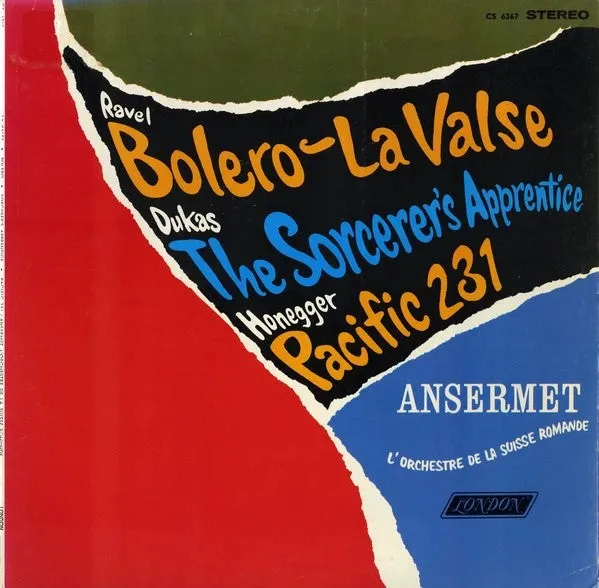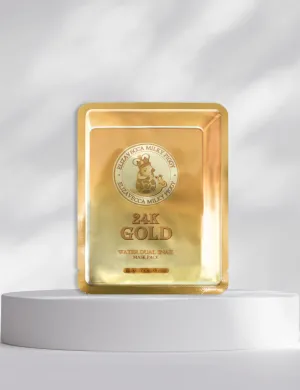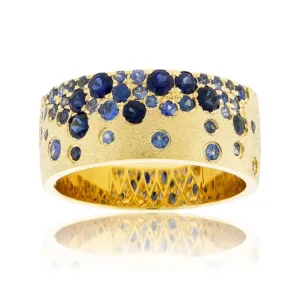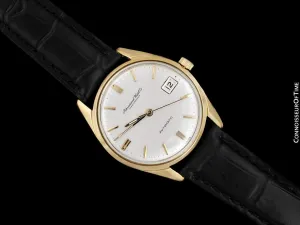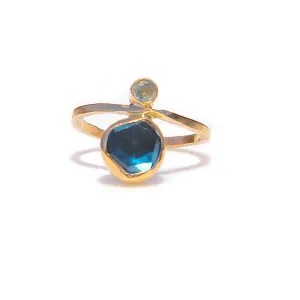*NOTE: There is a mark that plays at a light to moderate level throughout the first 1/8" of the first piece on side 1, Ravel's Bolero.
These pressings have top-quality sound that's often surprisingly close to our White Hots, but they sell at substantial discounts to our Shootout Winners, making them a relative bargain in the world of Hot Stampers ("relative" meaning relative considering the prices we charge). We feel you get what you pay for here at Better Records, and if ever you don't agree, please feel free to return the record for a full , no questions asked.
The sound is clear, with wonderful depth to the stage. As a rule, the classic '50s and '60s recordings of Ansermet and the Suisse Romande in Victoria Hall are as big and rich as any you may have ever heard. These recordings may just be the ideal blend of clarity and richness, with depth and spaciousness that will put to shame 98% of the classical recordings ever made.
Side One
Bolero (Ravel)
Tubey and clear, with both the snare and the flute coming from so far back in the hall! Outstanding energy and dynamic power.
Turn it up and it really comes to life like live music. It's big, wide and believable. We loved it!
Side Two
The Sorcerer’s Apprentice (Dukas)
There is depth and richness to beat the band, as well as clarity and tonal correctness that let you forget the recording and just enjoy the music. Nice extended top too.
The timbre of the brass is right on the money. As we have noted before, the brass of the Suisse Romande is some of the best to have ever been committed to analog tape.
Again, this side had outstanding energy and dynamic power the likes of which we think you may never have heard.
La Valse (Ravel)
Again, with that wondrously huge hall adding a sense of space that will allow your speakers to disappear. The performers are not too close, which is very much in keeping with live music.
In his tribute to Ravel after the composer's death in 1937, Paul Landormy described the work as follows:
"....the most unexpected of the compositions of Ravel, revealing to us heretofore unexpected depths of Romanticism, power, vigor, and rapture in this musician whose expression is usually limited to the manifestations of an essentially classical genius."
This vintage London Stereo pressing has the kind of Tubey Magical Midrange that modern records can barely BEGIN to reproduce. Folks, that sound is gone and it sure isn't showing signs of coming back. If you love hearing INTO a recording, actually being able to "see" the performers, and feeling as if you are sitting in the concert hall, this is the record for you. It's what vintage all analog recordings are known for --this sound.
If you exclusively play modern repressings of vintage recordings, I can say without fear of contradiction that you have never heard this kind of sound on vinyl. Old records have it -- not often, and certainly not always -- but maybe one out of a hundred new records do, and those are some pretty long odds.
What The Best Sides Of These Works by Ravel, Honegger and Dukas Have To Offer Is Not Hard To Hear
- The biggest, most immediate staging in the largest acoustic space
- The most Tubey Magic, without which you have almost nothing. CDs give you clean and clear. Only the best vintage vinyl pressings offer the kind of Tubey Magic that was on the tapes in
- Tight, note-like, rich, full-bodied bass, with the correct amount of weight down low
- Natural tonality in the midrange -- with all the instruments having the correct timbre
- Transparency and resolution, critical to hearing into the three-dimensional studio space
No doubt there's more but we hope that should do for now. Playing the record is the only way to hear all of the qualities we discuss above, and playing the best pressings against a pile of other copies under rigorously controlled conditions is the only way to find a pressing that sounds as good as this one does.
Copies with rich lower mids and nice extension up top did the best in our shootout, assuming they weren't veiled or smeary of course. So many things can go wrong on a record! We know, we've heard them all.
Top end extension is critical to the sound of the best copies. Lots of old records (and new ones) have no real top end; consequently, the studio or stage will be missing much of its natural air and space, and instruments will lack their full complement of harmonic information.
Tube smear is common to most vintage pressings. The copies that tend to do the best in a shootout will have the least (or none), yet are full-bodied, tubey and rich.
What We're Listening For On Works by Ravel, Honegger and Dukas
- Energy for starters. What could be more important than the life of the music?
- The Big Sound comes next -- wall to wall, lots of depth, huge space, three-dimensionality, all that sort of thing.
- Then transient information -- fast, clear, sharp attacks, not the smear and thickness so common to these LPs.
- Next: transparency -- the quality that allows you to hear deep into the soundfield, showing you the space and air around all the instruments.
- Extend the top and bottom and voila, you have The Real Thing -- an honest to goodness Hot Stamper.
Production and Engineering
Michael Brenner was the producer, the engineer for these sessions from 1958 in Geneva's glorious . It's yet another remarkable disc from the Golden Age of Vacuum Tube Recording.
The gorgeous hall the recorded in was possibly the best recording venue of its day, perhaps of all time. More amazing sounding recordings were made there than in any other hall we know of. There is a solidity and richness to the sound that goes beyond all the other recordings we have played, yet clarity and transparency are not sacrificed in the least. It's as wide, deep and three-dimensional as any, which is of course all to the good, but what makes the sound of these recordings so special is the weight and power of the brass, combined with timbral accuracy of the instruments in every section.
Vinyl Condition
Mint Minus Minus and maybe a bit better is about as quiet as any vintage pressing will play, and since only the right vintage pressings have any hope of sounding good on this album, that will most often be the playing condition of the copies we sell. (The copies that are even a bit noisier get listed on the site are seriously reduced prices or traded back in to the local record stores we shop at.)
Those of you looking for quiet vinyl will have to settle for the sound of other pressings and Heavy Vinyl reissues, purchased elsewhere of course as we have no interest in selling records that don't have the vintage analog magic of these wonderful recordings.
If you want to make the trade-off between bad sound and quiet surfaces with whatever Heavy Vinyl pressing might be available, well, that's certainly your prerogative, but we can't imagine losing what's good about this music -- the size, the energy, the presence, the clarity, the weight -- just to hear it with less background noise.
A Must Own Classical Record
This Demo Disc Quality recording should be part of any serious Classical Music Collection. Others that belong in that category can be found .

